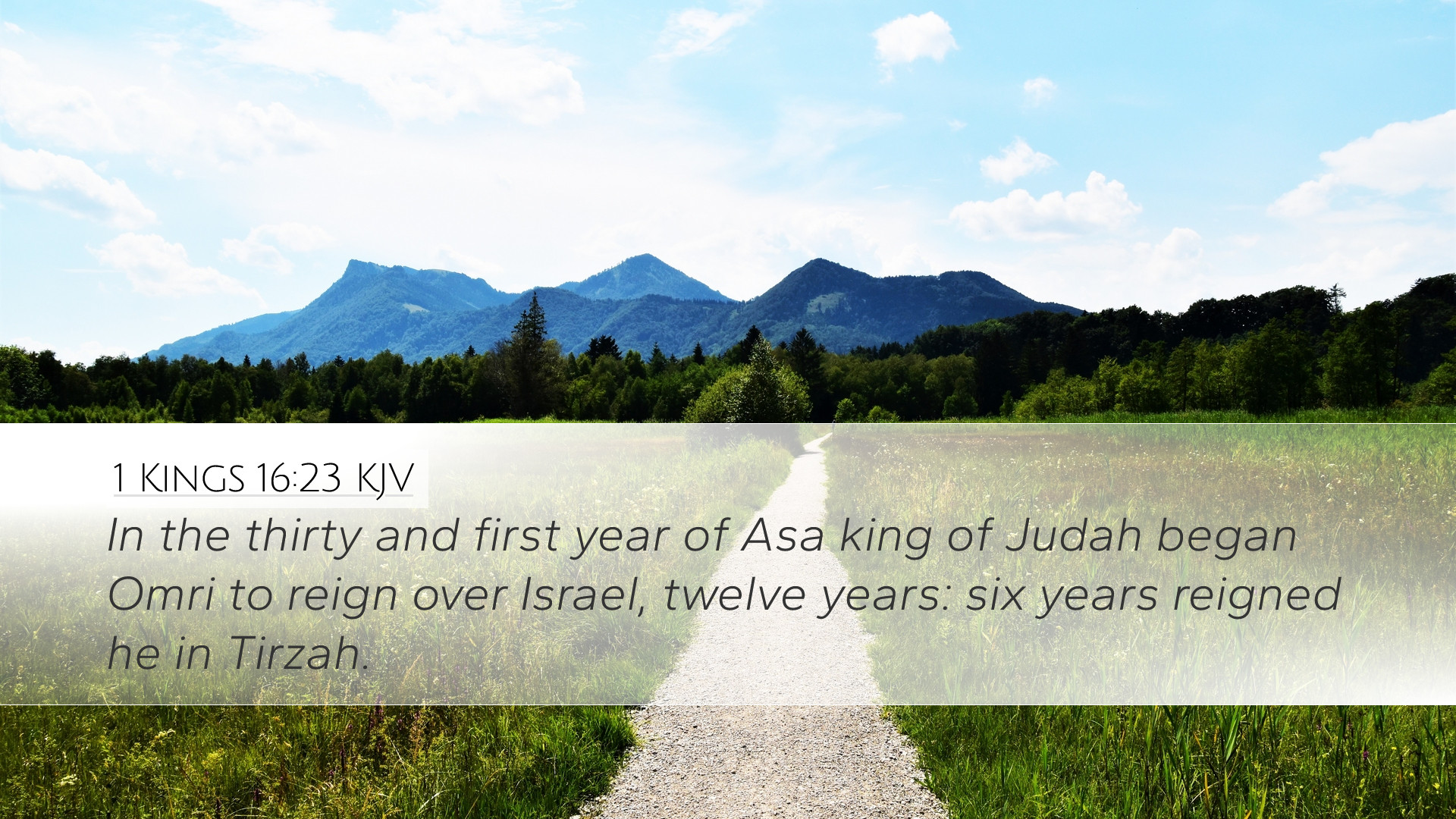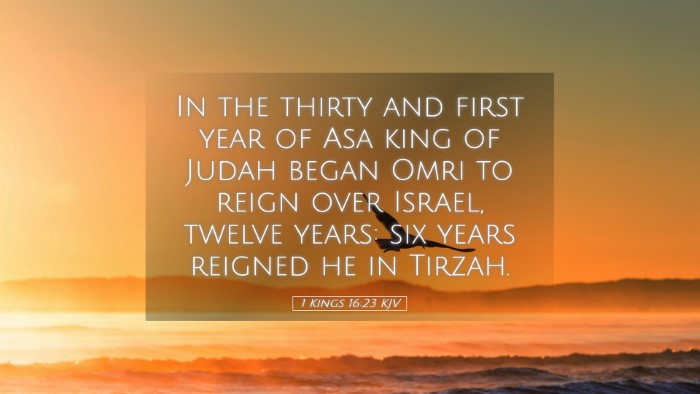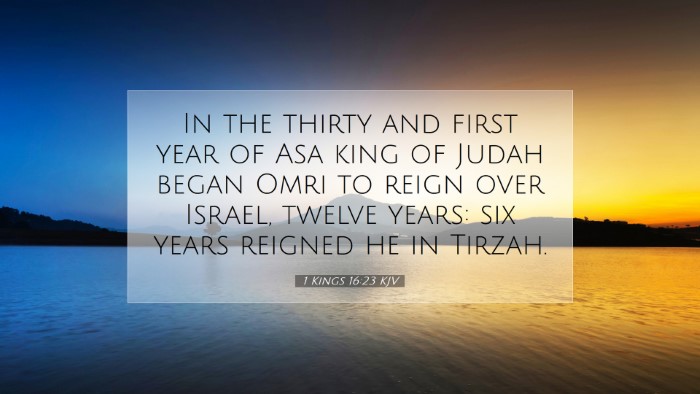Commentary on 1 Kings 16:23
Verse Text: “In the thirty and first year of Asa king of Judah began Omri to reign over Israel, and reigned twelve years: six years reigned he in Tirzah.”
Introduction
The reign of Omri marks a significant turning point in the history of the northern kingdom of Israel. His ascent to power occurs within the broader context of Israel's political instability and moral decline. This commentary draws from noted public domain sources to provide a comprehensive understanding of 1 Kings 16:23, focusing on Omri’s reign and the implications of his leadership.
Historical Context
Omri's reign is situated during a tumultuous period in Israel's history, characterized by frequent changes in leadership and ongoing conflicts with surrounding nations. The mention of the thirty-first year of Asa's reign in Judah establishes a chronological connection that underscores the parallel trajectories of the southern and northern kingdoms.
Matthew Henry's Perspective
Matthew Henry emphasizes the importance of Omri's reign in the context of Israel's civil disorders. He notes that Omri rose to the throne during a time of deep crisis, which further necessitated his eventual consolidation of power. Henry suggests that Omri’s methodology in securing his position involved significant political maneuvering, demonstrating the allure of power and the propensity for moral compromise that characterized many leaders during this era.
Albert Barnes' Commentary
Albert Barnes provides a detailed analysis of Omri’s six-year reign in Tirzah, highlighting the strategic importance of this location. Tirzah, known for its fortifications, served as a political center during the early years of his reign. Barnes points out that Omri's decision to move the capital eventually to Samaria was crucial in establishing a lasting dynasty that would influence Israel's future. This transition not only reflects administrative considerations but also the broader desire to solidify control, signaling a shift in focus towards urbanization and centralized governance.
Omri's Reign and Leadership
Character and Achievements
Omri is often regarded as a pivotal yet controversial figure. His reign was marked by both military success and spiritual failure, which highlights the dichotomy present in many of Israel's leaders.
- Military Prowess: Under Omri's leadership, Israel experienced significant military engagements, including conflicts against the Moabites and other neighboring nations.
- Urban Development: The relocation of the capital to Samaria not only fortified Israel’s defenses but also laid the groundwork for economic prosperity and cultural development.
- Spiritual Compromise: Despite his achievements, Omri is often critiqued for his promotion of Baal worship, which led to further moral decline among the people of Israel.
Adam Clarke's Insights
Adam Clarke notes that Omri's reign came to symbolize a shift in Israel's identity. He contrasts Omri's political strategies with the previous rulers, indicating that Omri’s ascension was marked not only by coercion but also by the people's desire for stability. Clarke further explores the consequences of Omri's actions, emphasizing the long-term effects of his policies, particularly the introduction of idolatry that would have repercussions for future generations.
Theological Implications
The narrative surrounding Omri provides critical theological reflections for contemporary readers. His leadership encapsulates the tension between temporal success and spiritual fidelity. The consequences of Omri’s reign serve as a poignant reminder of the importance of aligning leadership with divine principles.
- Divine Sovereignty: The mention of Asa during Omri's reign reminds us of God’s overarching sovereignty even in the midst of human leadership failures.
- Warning Against Compromise: The spiritual decline during Omri’s rule is a cautionary tale about the dangers of aligning power with idolatry and moral decay.
- Legacy of Leadership: Omri's story invites leaders today to consider the lasting impact of their decisions on future generations.
Conclusion
The brief yet impactful reign of Omri in 1 Kings 16:23 highlights significant themes of power dynamics, spiritual integrity, and the responsibilities of leadership. The insights from Matthew Henry, Albert Barnes, and Adam Clarke collectively underscore the complexity of Omri's legacy. For pastors, students, theologians, and Bible scholars, this commentary reaffirms the importance of studying history not just for knowledge, but for wisdom in applying biblical principles to contemporary leadership and faith practices.


